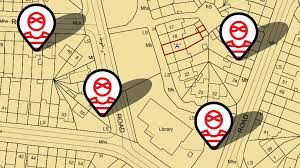A woman who put her parents’ flat on the market while her father was temporarily in a care home and her stepmother was in the Caribbean visiting a sick relative has been handed a three year prison sentence.
52 year old Valerie Edwards put the property, valued at £340,000, on the market during Spring last year and found a buyer. However, neighbours spotted removal men at the property and raised the alarm.
The Crown Court in Snaresbrook was told that Edwards had used a local estate agent and produced a fake Power of Attorney letter to prove she was entitled to sell the flat. To avoid arousing suspicion, Edwards instructed the Agents not to advertise the flat publically and only to offer it directly to would-be buyers. A sale was agreed but thanks to the fast actions of nearby neighbours, the owner was able to stop the transaction from completing. Police intervened and all but £3,000 of the sale proceeds were returned to the buyer.
Preventing property fraud
Edwards’ actions are nothing new – so-called ‘property hijacking’, where fraudsters pretend to be the owners of an empty property – is on the rise. According to the Land Registry, instances of fraud have tripled since 2013, worth £24.9 million in the year to April 2017.
You are more at risk of property hijacking if:
- You rent out your property
- Your property is empty
- Your property isn’t registered with the Land Registry
- You do not have a mortgage
- You live abroad
- You have had your identity documents stolen in the past
To reduce the risk of property hijacking:
- Ensure your property is registered with the Land Registry – it should be if you purchased or mortgaged it since 1998. Our conveyancing team can check the Register for you and provide a competitive quote for first registration if needed.
- Ensure you keep your contact address up to date with the Land Registry.
- Sign up to get free Property Alerts from the Land Registry – although this won’t stop fraudulent transactions from taking place, you’ll be alerted if anyone applies to change the register.
- Put a restriction on the title which states that the Land Registry cannot register a sale or mortgage of the property unless a solicitor or conveyancer certifies that the application was made by you. There’s no fee if you are a business owner or you don’t live at the property – but if you do live at the property, there’s a £40 fee.
- Keep your identity documents safe – otherwise these can be used by fraudsters posing as you.
- If you know your property will be empty for a while, ask neighbours to keep an eye on it and give them your contact details. Let them know if anyone will be visiting the property, so they know which visits are planned and which may be suspicious.
- If you purchase property, make sure you use a professional solicitor to carry out the conveyancing for you. Visit the property and make sure your solicitor knows if it is empty, as they should be aware of the potential risk and may make appropriate enquiries.
If you believe you are at risk of property hijacking, speak to our property team to see how we can help.

